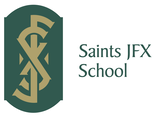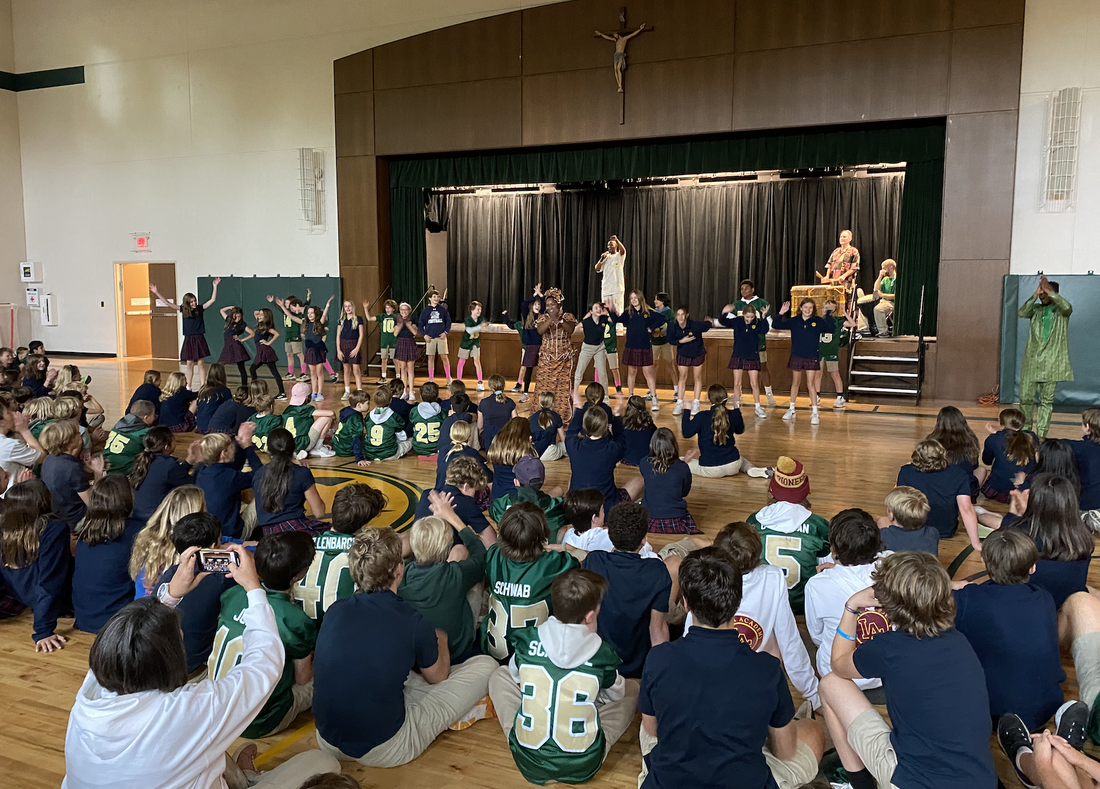Sixth Grade CurriculumLike all Middle School students, sixth graders are issued an iPad for use throughout the school day. Students change classrooms at each period for study with teachers focused on a single area of study. Reading, language arts and social studies combine in the Middle School to form an integrated Humanities block. This allows teachers to explore subjects in more depth through a cross-curricular platform, expanding concept understanding and mastery. Latin instruction is offered four times per week, beginning in the sixth grade.
Mathematics
The sixth grade mathematics curriculum is guided by McDougal Littell’s Math Course 2 textbook. Study focuses on multiplying and dividing decimals; integers; order of operations; displaying and analyzing data; geometric uses of angles, polygons, and transformations; and applications to real life situations. Pre-Algebra concepts are introduced to aid in the transition to seventh grade. Reading & Language Arts
The reading program is committed to daily, contemporary and classical reading including Independent Reading, Academic Reading, Rebecca Caudill Young Readers’ Books, and Scholastic SCOPE Magazines. In addition, students explore the literary elements and techniques of the novel, the short story, the play, and poetry. Word study, vocabulary building and comprehension, and spelling are studied as we read and explore words in context and with published lists. Annotation skills are introduced and practiced. To enhance and encourage the value of reading, students participate in weekly Library Studies. Reading daily for learning and for life is our priority. Critical and creative thinking, meta cognition and self awareness, peer cooperation, technology, organizational, and communication skills define our reading experience. The language arts program is committed to daily writing including Creative, Expository, Narrative, Persuasive, Response to Literature, and Research multi paragraph papers. All writing employs the Writing Process, and our words, sentences, and paragraphs illustrate Six Trait awareness including Ideas, Organization, Word Choice, Personal Voice, Sentence Fluency, and Conventions. Writing topics directly relate to our Reading and Global Studies curriculum. Writing daily for learning and for life is our priority. In addition to writing and literature, English conventions, grammar, and speech are reviewed and practiced daily. Critical and creative thinking, meta cognition and self awareness, peer cooperation, technology, organizational, and communication skills are developed. Social Studies
Social Studies concepts include Physical Geography, Cultural Geography, World History, Political, Economic, Social, and Cultural systems. Students read, think, write, discuss, and learn about the following regions: Africa, The Middle East, Europe, Japan, India, China, Latin America, and North America. All regional studies are connected to 21st Century American and Global identity. Our reading and writing topics directly relate to our Reading and Language Arts curriculum. Students are encouraged to compare and contrast global cultures to identify universal truths about humanity that transcend time, place, and culture. Critical and creative thinking, meta cognition and self awareness, peer cooperation, technology, organizational, and communication skills are emphasized. English Review Program
Every Middle School grade meets twice per week with a dedicated specialist as part of our English review program. Grammar, usage, and conventions are reinforced, to prepare students for high school language success. Test taking and organizational strategies are also incorporated, teaching important skills that benefit students across all subject areas. Science
All Middle School students receive science instruction in the school’s science lab. As part of the science curriculum, sixth through eighth grade students are required to participate in a rigorous, annual science fair. Students research, design an experiment, and write a report in one of several scientific disciplines, which is judged by a panel of community members, teachers, and school parents. Students learn to hypothesize, manipulate variables, interpret data, and identify findings with the use of iWork’s Keynote and Numbers, both on their iPads and using the lab’s SMART Board. “Winning” presentations are eligible for participation on the Regional and State level in March and early May. Specific areas of study through Middle School include the foundations of science and experimentation, a full year of Earth Science and Biology, and a full semester of physics and chemistry, respectively. Students are introduced to each discipline with support from the Glencoe 2011 online text. Latin
The sixth grade Latin curriculum introduces students to “restored, classical” Latin pronunciation through conversational Latin and song, to a body of vocabulary and to a selection of English derivatives from Latin roots. Additionally, students learn to define linguistic concepts such as gender, case, declension, conjugation, person, number and mood. They master nominative (subject, predicate complement), accusative (direct object), vocative (direct address) and ablative (prepositional phrases) cases of nouns. Students come to recognize, identify and be able to write examples of the first, second and third noun declensions in the above-mentioned cases as well as indicative mood present tense endings and imperative mood of verbs. Students also are introduced to cultural and mythological topics such as the Roman family, Roman clothing, Roman slavery, Aeneas, Olympian gods, and more, through a variety of activities including individual and group research, construction, and presentation. The textbook and workbook used are Lawall, Gilbert. Ecce Romani IA (Boston: Pearson), 4th ed., 2009. Religion
Religion curriculum explores the structure and content of the Bible with a strong focus on the Old Testament. Bible stories are used as examples of God’s call to mankind and man’s response, both through the actions of early prophets and in today’s world. Through the study of the Bible, the lives of the saints and prayer, students develop an understanding of God’s invitation to each of us to follow Him and to do His will. Every K-8 grader at SFX School plans and leads several all-school liturgies each year. Students attend Mass one morning every week in the church. Technology
Middle School students are issued an iPad for their personal use throughout the school day. As in all K-8 grades at SFX, Middle School students also benefit from a SMART/interactive White Board in every classroom, and check out other technology tools for targeted academic applications. Online resources are incorporated into all areas of curriculum. |


